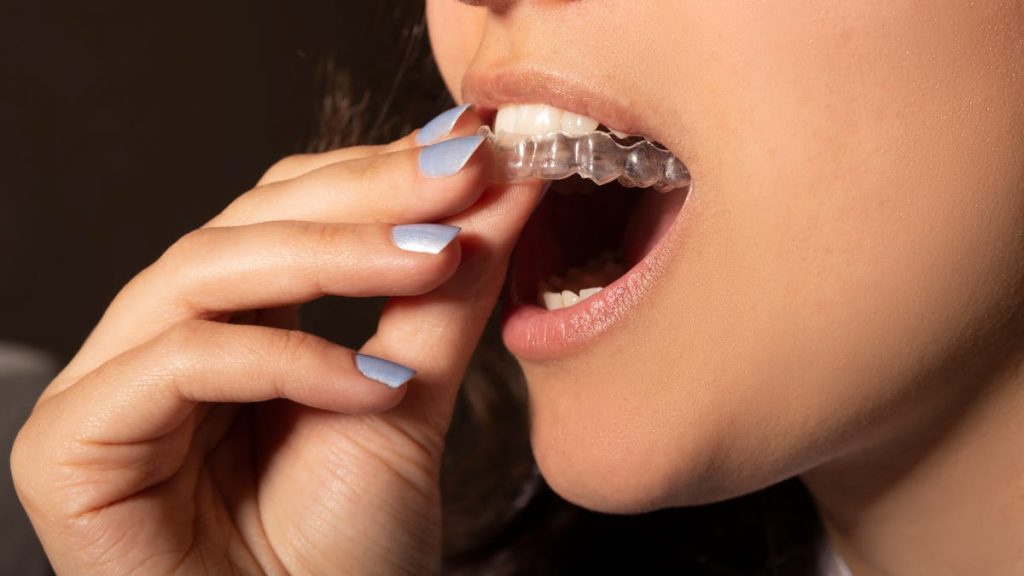Advancements in dental technology have given people the option of clear aligners or invisible braces to straighten their teeth, moving away from traditional metal braces. However, there are differences between companies like Invisalign, which require in-office appointments with a dental professional, and direct-to-consumer sites that provide remote molds and aligners without any checkups. Many dental and orthodontic professionals, including the American Dental Association, do not recommend direct-to-consumer aligners due to the potential dangers of teeth straightening at home without medical oversight, such as bone loss, teeth loss, gum issues, bite problems, jaw pain, and permanent issues. Orthodontist Dr. Kami Hoss recommends getting an orthodontic consultation before proceeding with at-home aligners to ensure the health of your teeth and overall oral health.
In-office aligners require appointments and check-ups with a dental professional, while at-home aligners can be obtained from direct-to-consumer companies, which ship aligners based on remote molds without attachments. However, in some cases, the long term effects of unsafe teeth alignment may cause issues later on, emphasizing the importance of confirmation of healthy teeth before starting treatment. Most clear aligners need to be worn throughout the day unless eating, although some companies offer a night-time only plan. Companies like Invisalign, Reveal, and Byte offer similar treatment options, with varying costs and payment plans depending on individual treatment needs.
Invisalign is a well-known brand that requires check-ups with a doctor throughout the treatment plan, with costs comparable to regular braces. Reveal and Byte offer similar options with check-ups and appointments with dental professionals for ongoing oversight during treatment. Reveal’s aligners are guaranteed to maintain clarity and minimize the use of attachments, offering a monthly payment plan. Byte offers a premium option with a 1:1 consultation with an affiliated dentist and includes a tool called HyperByte for better treatment results. AlignerCo is a direct-to-consumer company with a more affordable option, providing a flat rate for treatment including the impression kit and retainers, with options for monthly payments. Candid, another direct-to-consumer company, requires some doctor involvement for ongoing oversight during treatment.
Overall, the choice of clear aligner company depends on individual preferences, concerns over medical oversight, affordability, and type of care needed. It is important to consider the unique features of each company, such as the level of doctor involvement, cost, payment plans, and treatment options when choosing a clear aligner provider. Prior to starting treatment with at-home aligners, it is recommended to get a thorough examination of oral health to ensure the best possible outcome and minimize potential long-term side effects from unsafe teeth alignment.


